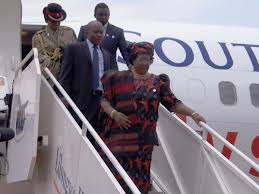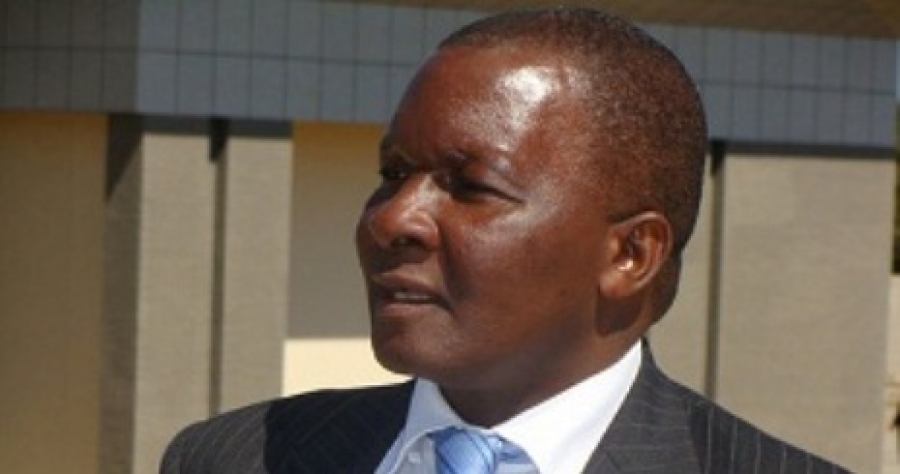Malawi President Joyce Banda is going ahead to attend a summit in Equatorial Guinea, leaving behind a country that has been paralysed by an unfolding industrial action which started with civil servants in the Malawi capital, but has now spread across the public service and is attracting solidarity expressions from private sector workers.
A trip which is being seen by observers as sneaking away from the country as its economic problems are peaking fits well in the style of Banda in dealing with the ongoing industrial action as she all along wanted to avoid it when on the eve of its commencement only death of an influential chief prevented her from travelling to South Africa on a brief retreat.
She instead shifted from her base in Lilongwe, where the strike started, to Blantyre where she remains until now. According to insiders, she had hoped that the strike would peter out in her absence. That was not to be. Instead the strike has spread and obtained vigour in its intensity with no promise in sight that it will end soon.
A statement from the Government Negotiating Team issued yesterday calling for a ceasefire and inviting leaders of the strike to a roundtable was defied this morning when different sets of strikers in different parts of the country marched to the Office of the President and Cabinet or her representative to present their petitions while chanting that the President had failed.
The strike entered its eighth day today with the country’s airports closed following the downing of tools by airport staff and immigration workers. Reports are also emerging that different public hospitals have been closed after medical staff also joined the industrial action.
Teachers in public schools joined the strike two days ago and the ripple effect was the protest this morning that different schools conducted at the President’s school in the commercial city of Blantyre, demanding that the learning institution should also be closed, charging that the failure by the owner of the school to solve problems had led to teachers in public schools to abandon their work.
“It is only fair that even here learning should stop so that perhaps Joyce Banda will see the importance of resolving the problems that have made our teachers go on strike,” lamented the pupils as they chanted while pelting the school with stones.
Malawi is on its economic knees after the Joyce Banda administration implemented impulsive economic reforms at the behest of the International Monetary Fund and western powers. The devaluation of the countries currency and floatation of the exchange rate has whipped up inflation to unsustainable proportions, while the people’s disposable incomes have dissipated.
While the industrial action has been taking place, Joyce Banda committed acts that can only result from error of judgment by launching multi-million sports trophies and selectively choosing to meet and discuss their problems with nurses, seen by observers as divide and rule tactics which have only served to fan more trouble for her.
Finance Minister Ken Lipenga addressed Parliament that government would not be able to meet the 67 percent pay rise as demanded by the striking workers because it did not have the resources, warning that bulging to the demand will take the reforms being implemented off track.
However the strikers and many observers dismiss the claims that government is broke, arguing that the fact that the President travels ceaselessly to the extent that she managed to blow her annual budget of K2.6 billion in six month contributing to the overall mid-term over expenditure of K68 billion shows that the coffers are not empty.





No comments! Be the first commenter?